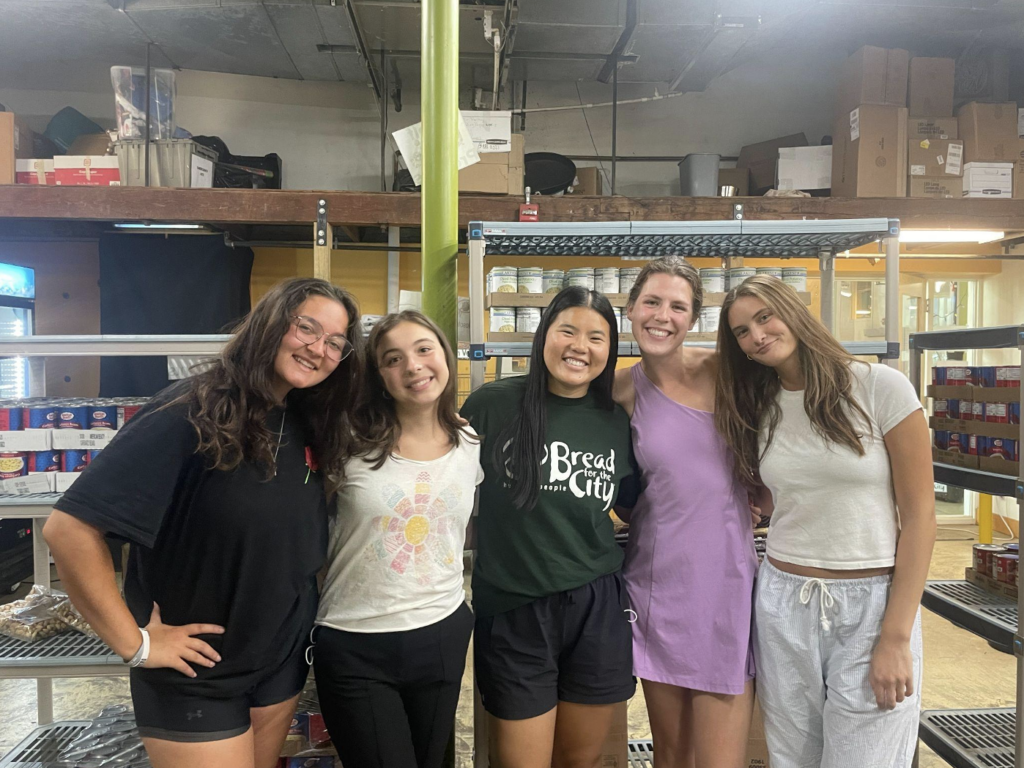Today was the first Sunday in months where I woke up in my own bed, went to church with my parents, and spent most of the day doing nothing. After weeks of go-go-going, it was nice but a little odd to have such a quiet day at home. I left D.C. yesterday, having wrapped up my internships at Bread for the City on Tuesday, and at Catholic Charities on Thursday. And on Friday, I was able to conclude and reflect in a final meeting with Dr. Holman.
At the beginning of the summer, I was worried about having a PLT internship focused on large-scale global health concepts while I worked for small-scale, local nonprofits. How was I supposed to connect readings about the WHO, low-income countries, or international movements to a DC-area food bank and clinic?
My conversations with Dr. Holman were the helpful link between these two worlds. Or really, she helped me see how they were not really two separate worlds at all; rather, the same global health principles and the principles of our faith undergird all of public health around the globe. Seeing people as possessing innate dignity from God and having a right to good health and wellbeing doesn’t stop in D.C. or halfway across the world, it includes (and must include) everyone.
Our conversations this summer ranged from the ways in which social determinants of health overlap, to the role of funding and finances in health, to what it means to give – selflessly, and in a way that invites a grace-full exchange of gifts and knowledge. These are concepts that do not just apply to the city in which I spent the summer. They apply to all of global health around the world, and they form a strong foundation as I enter back into my final year of school and plan for my time after graduation.
In our meeting on Friday, Dr. Holman showed me some frameworks that are helpful when approaching or creating global health initiatives. One centers around a rights-based approach to health. All people have innate rights to dignity, wellbeing, and self-determination (among others), and health is a key part of that.
This framework looks for four things in global health efforts: accountability, meaningful participation, non-discrimination and equity, and (international) assistance and cooperation. Having these four elements help ensure that the work being done emphasizes the dignity of all people and their right to good health. This rights-based framework is not mutually exclusive with religious faith; rather, they work together quite well. Concepts such as “participation” underline our capacity for free will, “equity” shows a commitment to being all made in the image of God, and cooperation and accountability emphasize being in community together.
These are ideals that we can all be looking for and creating in our communities. They extend beyond more than just a narrow view of public health and include a more complete concept of flourishing. As I leave Washington and prepare for my return to Charlottesville, I will be taking these principles with me. “Global” includes us all, and a path to better global health can start with us, at home.
This is one in a series of post by Elizabeth Rambo, on her 2024 PLT summer internship experience.
The Project on Lived Theology at the University of Virginia is a research initiative, whose mission is to study the social consequences of theological ideas for the sake of a more just and compassionate world.

